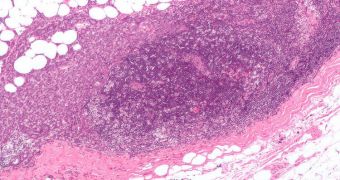Various forms of cancer are caused by various factors, oncologists have come to realize, which means that correlations may exist in the most unexpected places. For example, a connection may exist between breast cancer and working the night shift, researchers argue in a new paper. They say that women going to sleep in the early hours of the morning are actually exhausted all the time, which may contribute to elevating their risk of developing the dangerous condition, especially past a certain age.
Ettamay [last name concealed] is a former nurse, who used to work night shifts at a hospital. She suffers from breast cancer, and has now come to suspect that her long hours may have contributed to her present condition. “I was always exhausted. I don't know any of the nurses, especially the night shift gals, that weren't exhausted all the time,” she says. “There are a number of epidemiological studies that show women working night shifts have a higher incidence of breast cancer,” adds Carla Finkielstein, a Virginia Tech molecular biologist who is investigating Ettamay's claims.
“What we're trying to understand is how changes in environmental conditions influence the expression of genes that regulate cell division,” the researcher says. Her work is supported by a grant from the US National Science Foundation (NSF). One key goal of the research Finkielstein is conducting is determining whether an inverted sleep pattern – in which women stay awake when they should be sleeping, and vice-versa – can influence their physiology, or the way their bodies naturally work. For this job, the Virginia Tech team is using frog embryos, watching how the organisms regulate the expression of certain proteins depending on their sleep and activity patterns.
The team leader found that some of the proteins which are expressed in excess when women do not get enough sleep are capable of influencing genes that dictate how cells grow and divide. “And that [elevated protein concentration] could end up in cancer. It could end up in very many other diseases. But in our studies we believe that it ends up in an abnormal proliferation of cells. So people who actually have the disease might one day receive treatments at times that make the medicine more effective and, therefore, reduce the impact of the disease and, most likely, the secondary effects on the person,” Finkielstein concludes.

 14 DAY TRIAL //
14 DAY TRIAL //